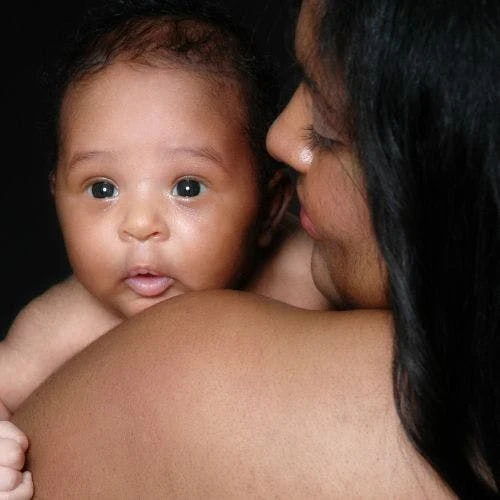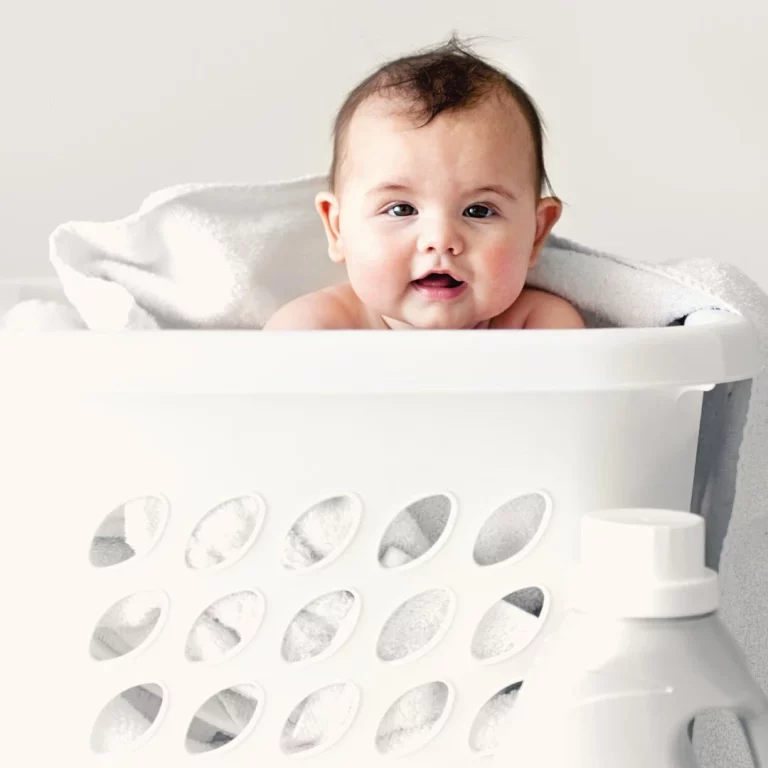9 Month Old Sleep Schedule
What is the optimal 9 month old sleep schedule? As you could have predicted a baby’s sleep schedule is going to be different for each child. However, there are some general guidelines surrounding wake windows and sleep training that we will discuss that can be helpful. You can also find a sample sleep schedule below.
Benefits Of A 9 Month Old Sleep Schedule
Navigating the sleep schedule of a 9-month-old baby can be challenging for parents, as infants at this age undergo various developmental milestones affecting their sleep patterns. During this stage, babies are transitioning from a polyphasic sleep cycle with multiple naps throughout the day to a biphasic cycle. A biphasic cycle means that they have a more consolidated sleep which should ideally be at night.
Having a consistent sleep schedule for your 9 month old can be helpful for the baby as well as for parents and caregivers. Additionally, if your 9 month old has older siblings, a sleep schedule can help to keep all children aligned. Having more predictable sleep schedule for your children can also allow you to get more sleep and help your child learn how to self soothe in the middle of the night.
Why Is Consistency Important In A 9 Month Old Sleep Schedule
A consistent sleep schedule is essential for a 9-month-old infant’s overall development, especially since their sleeping patterns play a significant role in their physical, cognitive, and emotional growth. Establishing a reliable sleep schedule can contribute to better nighttime sleep. One way to do this is to keep the sleep environment the same for daytime sleep and nighttime sleep. This way your baby always associated their crib with sleep and calming down. They will begin to feel comfortable there which will help self soothing at night.
How Much Does A 9 Month Sleep?
At nine months, babies generally sleep around 12 to 14 hours a day, with ideally 10 to 11 of those hours being at night. The remainder of the hours are usually divided into one morning nap and one afternoon nap.
Of course, sleep habits may vary considerably among infants due to factors such as temperament, family routines, and existing sleep associations. If your 9 month old takes a 3 hour nap in the middle of the day, then it is unlikely that they will take a second one before night time sleep.
If there are other children in the home, your 9 month old may be excited and have awake times that are more similar to their older siblings. If you sense that your baby is becoming cranky and is over stimulated, it is a good idea to take them into a calm environment away from other children to see if they will fall asleep.
Why Is Sleep Important For A 9 Month Old?
Proper sleep aids in crucial processes like memory consolidation, and strengthens the immune system. Moreover, a good sleeping pattern can improve an infant’s attention span, overall mood, and reduce the chances of developing sleep problems later in life.
A structured sleep schedule for a 9-month-old can benefit the entire family. Parents, especially mothers, experience less stress and improved mental health when their infants have a predictable sleeping routine. This is evidenced by a randomized trial conducted in Victoria that observed a reduction in the prevalence of reported postpartum depressive symptoms among mothers with predictable infant sleep schedules.
Establishing A Bedtime Routine For 9-Month-Old Babies
Bedtime routines also help with reinforcing consistency and creating your baby’s sleep habits. The association of the same routine night after night with sleep will help your baby realize that sleep time is approaching. Certain activities like the ones discussed below are also soothing and calming. These are better to do than giving your child screen time or outdoor play right before bed.
Bath Time
A warm bath for your baby can help them relax and signal to them that bedtime is approaching. Make sure the water temperature is comfortable, and use gentle baby soap or bubble bath. Bathtime can also serve as a bonding experience between the baby and the caregiver. After the bath, dry your baby gently and dress them in comfortable sleepwear.
Reading Or Storytelling
Bedtime is a great time for reading. Storytelling can help calm their mind and enhance their cognitive development. Choose age-appropriate books or stories that feature soothing colors and simple narratives. This activity also helps build a connection between you and your baby while providing them with a sense of security.
Soothing Activities
Soothing activities can help your baby settle down before sleep. For example, a gentle massage of your babies legs and feet may help them to calm down. You can also play calming music or sing to your child. It is also important to create a soothing environment with dim lighting and little noise. Some babies also respond well to a white noise machine to block out any distracting sounds. You will quickly learn what helps to calm your baby’s energy levels and where their sweet spot is for falling asleep.
Creating an Ideal Sleep Environment
Dark and Quiet Room
To create an ideal sleep environment for a 9-month-old, a dark and quiet room is essential. As infants are still developing their circadian rhythms, exposure to darkness during sleep time can help regulate their sleep patterns better 1. To achieve this, install blackout curtains or shades in the baby’s room to block out any light pollution. Additionally, consider using a white noise machine or a fan to drown out any background sounds that may startle or disturb the baby’s sleep.
Comfortable Temperature
Another critical element in creating a conducive sleep environment is maintaining a comfortable room temperature. Research suggests that the ideal sleep temperature for infants is between 65°F (18°C) and 72°F (22°C) 2. To ensure the baby is neither too hot nor too cold, monitor room temperature and adjust accordingly. Dressing the baby in light layers is also helpful, as it allows for easy adjustments when needed.
Avoid Screens During Baby’s Bedtime
Your baby’s sleep area should not have any screens. Exposure to screens and their emitted blue light can interfere with the natural production of melatonin in infants. This can potentially disrupting their sleep 3. To minimize this risk, avoid placing any screens such as TVs, computers, or smartphones in the baby’s room or ensure they are turned off well before bedtime. It is better to focus on soothing activities like reading or singing a lullaby to help the baby relax and drift off to sleep.
Naptime Guidelines For A 9 Month Old’s Sleep Schedule
Number of Naps
At around 9 months old, most infants typically transition from three naps to two naps per day. This usually comprises one nap in the morning and another in the afternoon. Maintaining a consistent daytime sleep schedule can help promote better sleep at night and promote overall sleep quality.
Nap Duration
A 9-month-old’s naps can vary in duration, with some babies sleeping for 1 to 1.5 hours per nap, while others may nap for up to 2 hours. It is crucial to observe your baby’s sleep patterns and adjust nap durations accordingly to suit their individual needs. Adapting to their sleep cues, such as yawning or rubbing eyes, can help in establishing an effective naptime routine.
Wake Windows
Try to keep the wake windows between naps to around 3 hours. The exception to this is after the last nap of the day. One tactic parents use to help their baby get more nighttime sleep is by stretching the wake window to 4 or 4.5 hours between the afternoon nap and bedtime. Now, not all children can do this and they may become very fussy around the 3.5 hours mark. Trying to entertain them and keep them engaged can help to stretch this window a bit longer.
Balancing Awake and Asleep Time
At this age, a healthy balance between awake time and sleep is essential for your baby’s growth and development. Infants usually need approximately 12 to 16 hours of sleep, including nighttime sleep and naps, in a 24-hour period. The appropriate wake time for a 9-month-old is generally 2.5 to 3.5 hours between naps. Keeping a sleep journal or tracking app may assist in finding the optimal balance between your baby’s awake and asleep times, ensuring they feel well-rested and alert during their waking hours.
Potential Disruptions To Your 9 Month Old’s Sleep Schedule
Now you can make any schedule you want, but it’s not certain that your 9 month old is going to follow it. There are many potential causes for disruption to your 9 month old’s sleep schedule, so it’s best to be prepared ahead of time.
Developmental Milestones
Related: Best Waterproof Bath Books For Toddlers
At around 9 months, infants experience a period of rapid growth and development. They may begin to crawl, sit up independently, and even attempt to stand. These developmental milestones can lead to potential sleep challenges as the child’s increased physical activity and cognitive stimulation can cause them difficulty in settling down for sleep. Infants learning to crawl may be more inclined to practice this skill in the crib, leading to restlessness and disrupted sleep. As they begin to sit up and stand, they might struggle with figuring out how to lie back down, further disrupting sleep.
Teething During The First Year Of Life
It is very likely that your child will have some teeth coming in around 9 months. This pain can disrupt your sleeping baby and also make it harder for them to fall asleep. Even babies who are great sleepers can be woken up from the pain of teething. The upper central incisors come in usually between 8 to 12 months. Then the upper lateral incisors come in between 9 to 13 months old. Having a good teether can help to make your little one more comfortable.
Separation Anxiety
Another challenge during this period is separation anxiety A 9-month-old may develop a heightened awareness of their caregiver’s absence and become distressed when they are not nearby. This may result in difficulty falling asleep independently, because your child may want and need comfort from you. It is essential to establish a consistent bedtime routine and provide reassurance to the child as they learn to self-soothe and fall asleep on their own.
Sleep Regressions
Sleep regressions can also occur around the 9-month mark. Luckily it is a temporary stage where a child’s sleep patterns may become disrupted. If your child is going through a sleep regression, they may have a change in their nap schedule as well as their hours of nighttime sleep. They could have early morning wakings, increased night wakings and difficulty staying asleep.
Dealing With Sleep Regressions At 9 Months Old
Consistency here again is going to be the best thing you can do. It will be much harder though to keep consistency in your daily routine if your baby has decided they don’t want to stick to that routine. Give yourself grace and remember that with some time and age, your baby will begin to sleep better. There are also several sleep training methods you can try at this age such as the Ferber Method to help you achieve longer periods of sleep.
Remember to talk to your child’s pediatrician for any ongoing sleep challenges or concerns. By understanding the potential sleep challenges faced by a 9-month-old, caregivers can better support their child’s sleep needs during this crucial developmental period.
When To Seek Professional Help
It is natural for parents to experience challenges with their 9-month-old’s sleep schedule. However, there are instances when seeking professional help may be necessary. Knowing when to reach out for expert guidance is important for the well-being of the child and the family.
Difficulty with sleep patterns might be a reason for concern if consistent disruptions persist, affecting their day-to-day lives. For example, if a child experiences frequent night waking or trouble falling asleep that impacts their overall development. In such cases, the assistance of a sleep consultant or pediatrician is recommended.
Another scenario where professional help should be sought is if there are signs of a sleep disorder. Common sleep disorders in infants include sleep apnea, restless leg syndrome, and periodic limb movement disorder. These conditions involve abnormal movement, breathing problems, or disruption in sleep quality and duration. If parents suspect their infant is experiencing symptoms related to a sleep disorder, it is crucial to consult with a healthcare professional for an accurate diagnosis and treatment plan.
9-Month-Old Sleep Schedule Sample
630 AM: Wake Up
645 AM: Breast Milk / Formula
800 AM Solid Foods
845 AM: Breast Milk / Formula
900 AM Nap for 90 minutes
1030 Wake up & Play
1200 Noon: lunch
1245 pm Breast milk / Formula
1 pm Nap for 90 minutes
230 wake up & play
330 Breast milk / Formula
5 pm Solid Foods
6 Pm Start Bedtime Routine
645 PM: Breast Milk / Formula
7 PM Sleep
9 Month Old Sleep Schedule
Implementing a consistent sleep schedule for a 9-month-old infant not only supports their healthy development but also promotes a better quality of life for the entire family. By 9 months, the baby’s circadian rhythm has developed. Parents and caregivers can support healthy sleep habits through various strategies, such as creating a calming bedtime routine, maintaining a consistent sleep environment, and being aware of any potential disruptions to sleep.
In addition to nighttime sleep, it is important to consider the role of daytime naps in a 9-month-old’s sleep schedule. Proper nap duration and timing can contribute to a more restful night’s sleep and support the child’s overall development. Be sure to have at least a 3.5 hour to 4 hour wake window before night sleep to helpyour baby have a longer stretch of sleep at night.You can also view the sample schedule above to help you make a plan.
Ultimately, a well-balanced sleep schedule at 9 months of age leads to improved temperament, cognitive function, and physical growth. By providing a supportive and nurturing sleep environment, parents and caregivers can help pave the way for healthy sleep habits throughout the child’s life.
Sources:
- https://www.ncbi.nlm.nih.gov/pmc/articles/PMC1360902/ ↩
- https://www.ncbi.nlm.nih.gov/pubmed/26025652 ↩
- https://www.sleepfoundation.org/bedroom-environment/electronics ↩
We discuss products we think are useful to people. If you buy something through our links, we may earn a commission. Remember to check with your personal physician to see if a product recommended is right for you.








